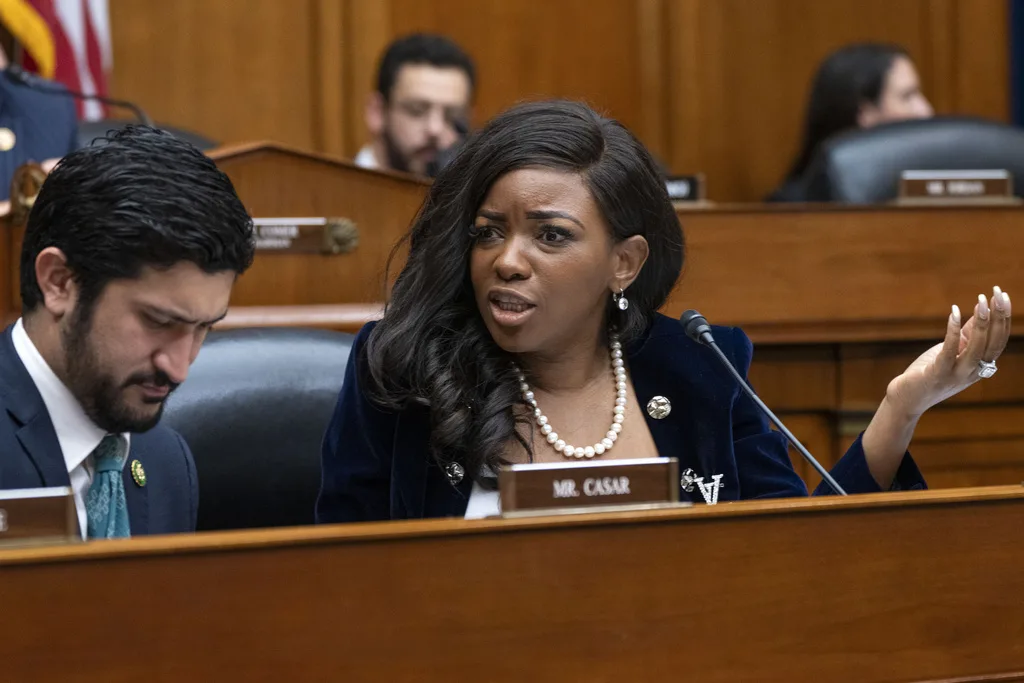
As reparations commissions across the country struggle with how to deal with the issue, one federal lawmaker says that Black Americans should simply be exempted from paying taxes for a certain period of time as part of that effort. The lawmaker in question, Congresswoman Jasmine Crockett, is serving her first term in the House, representing Dallas.
“Just this past week I saw, I don’t remember which celebrity, but it was actually a celebrity, and I was like, ‘that’s not necessarily a bad idea,’ but I’d have to think through it a lot,” Ms. Crockett said in a video posted on X by an account called End Wokeness. “One of the things that they propose is black folk not have to pay taxes for a certain amount of time.”
“Because, then again, that puts money back in your pocket,” she added. “At the same time, it may not be as objectionable to some people as actually giving out dollars.”
“That’s one of the reasons that we argue that reparations make sense. … The fact is, we end up being so far behind,” Ms. Crockett said of the need for payment to Black Americans.
The first-term lawmaker has not introduced legislation to begin the process of a federal reparations program, though there is a proposal from Congresswoman Sheila Jackson Lee, a fellow Texan, that would establish a commission to study the issue. That legislation has never received a vote in the House.
Commissions like the one Ms. Lee proposes are popping up all over America, causing political problems for Democratic leaders. Governor Newsom signed legislation to establish a California reparations commission which later spent years studying the issue and another in New York is just getting started.
The California panel ultimately recommended hundreds of billions of dollars in spending, including decreasing taxes for Black Californians, payments for individuals to buy homes, and other programs. The total cost of the commission’s recommendation would have eclipsed that of California’s annual budget, making it a practical and political impossibility.
Some Black California lawmakers are still pushing forward, however, with new proposals aimed at closing gaps in educational outcomes, helping Black citizens buy homes, and create new loopholes to allow for considering race in higher education, the Sun has reported.
Several other states and localities are also studying potential reparations solutions, including in addition to New York, New Jersey, Boston, Detroit, and Fulton County, Georgia.

